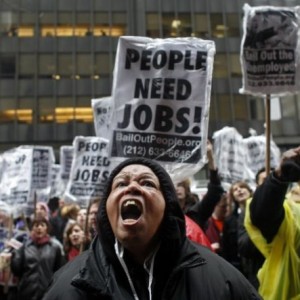This article was first prepared by americanprogress.org
Unemployment insurance is the primary government mechanism providing financial assistance to workers who are unemployed through no fault of their own. These benefits are set to expire on December 31. If Congress does not address this problem by the end of December, 2.2 million unemployed workers will lose their benefits by February. In 22 states, more than 30,000 unemployed workers will lose benefits.
Extending unemployment benefits is critical because our economy remains mired in one of the worst labor markets since the Great Depression. There are currently 13.9 million Americans unemployed, with the unemployment rate at or above 9 percent for 28 of the past 30 months. In October, the last month for which complete data are available, nearly half of those unemployed (42.4 percent)—5.9 million workers—had been out of work and actively seeking a job for at least six months. (see map below).
Currently, there are nearly five workers actively searching for work for every job available, compared to just one and a half job searchers per job opening before the Great Recession began. Allowing unemployment benefits to expire amid such a weak labor market would have serious implications for the unemployed, as well as every one of us who still has a job.
The reason: An end to the benefits would threaten our economic recovery. Economists across the board agree that unemployment benefits are one of the most important countercyclical economic policies we have, helping those who do not have jobs with assistance that is immediately spent in the broader economy. Over the past few years, according to a detailed study by Wayne Vroman for the Department of Labor, benefits for the long-term unemployed led to the creation of about 700,000 new jobs each quarter.
Congress needs to act. It’s that simple.

Heather Boushey is an economist at the Center for American Progress.



